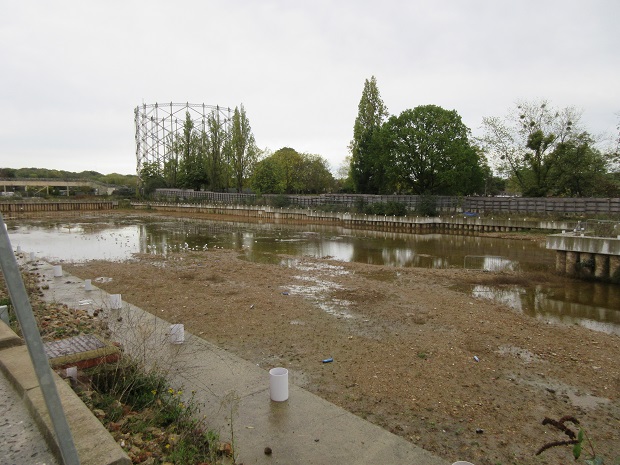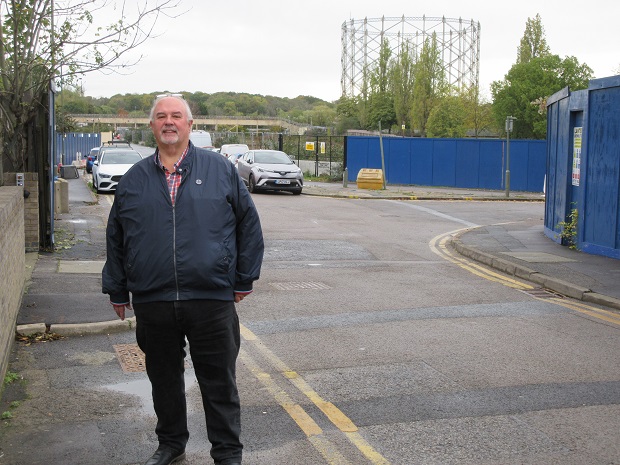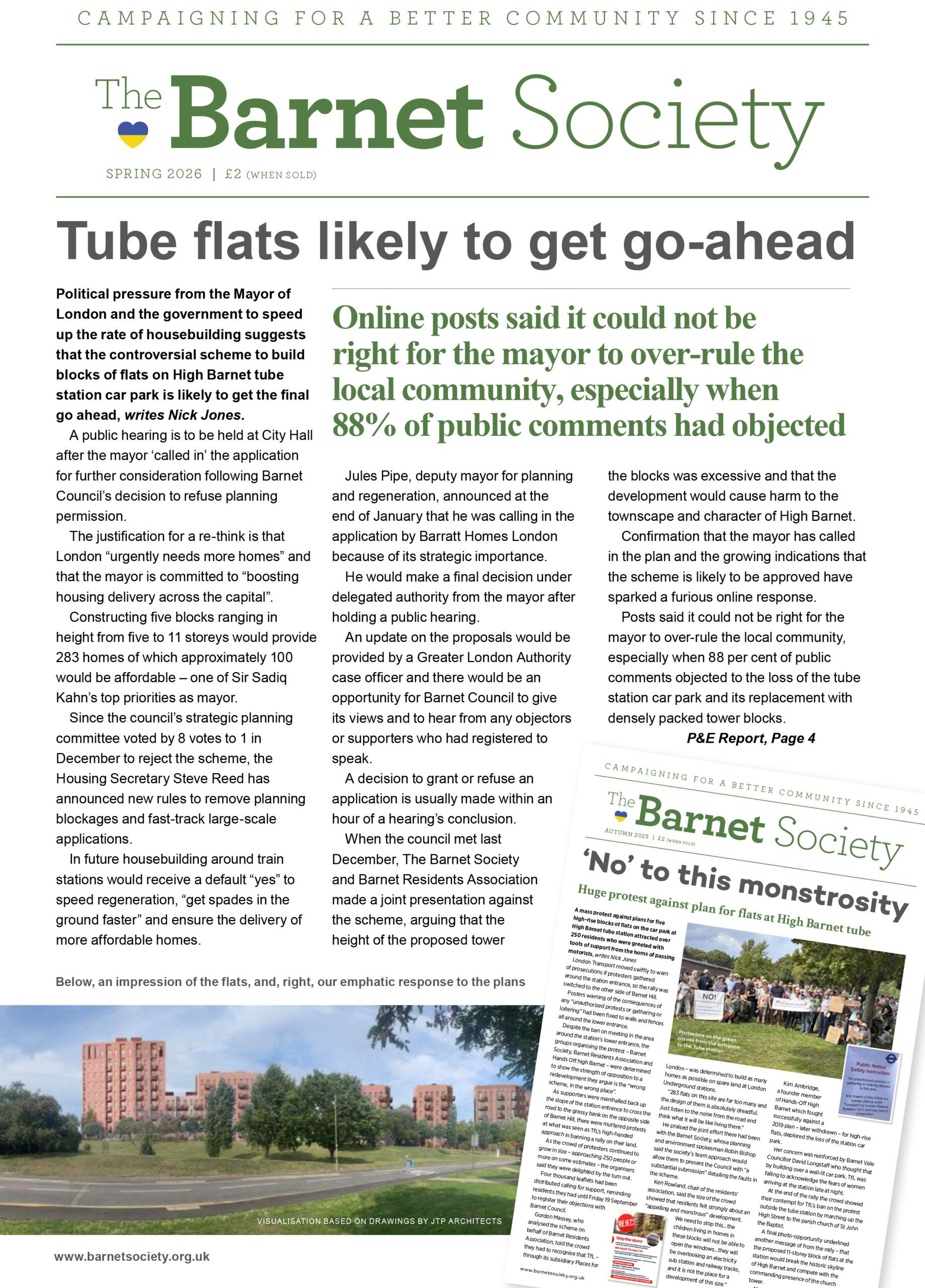High Court to rule on latest twist in long running saga over New Barnet’s troubled gas works site

A fourteen-year dispute about redeveloping the former gas works site in New Barnet is about to kick off again in the High Court when housebuilders Citystyle Fairview will try to overturn the decision of a planning inspector.
A judge will be asked to give a ruling on whether the planning inspector John Wilde “erred in law” when he rejected an appeal against Barnet Council’s refusal to grant planning approval for 13 blocks of flats.
In asking for a judicial review on behalf of Citystyle Fairview, the company’s lawyer, Reuben Taylor, KC, has set out detailed reasons why he believes the inspector’s decision was wrong in law.
The High Court will have to decide whether to order the Secretary of State to hold a fresh public inquiry into the plan for 539 flats in 13 blocks ranging in height from four to seven storeys.
Because of the cost of legal representation in the High Court, Barnet Council will not be represented – nor will the other interested party, New Barnet Community Association, which opposed the planning application, and which says the expense of hiring a lawyer is far beyond the means of a voluntary organisation.
After a two-week inquiry in July, the inspector dismissed Citystyle Fairview’s appeal against the council’s refusal to grant planning permission.
Mr Wilde was in no doubt that a mass of tall blocks of flats would be an unacceptable intrusion into the New Barnet neighbourhood.
“Overall, I consider that the sheer scale of the proposed development would cause a dislocation within the area, inserting an alien typology of larger mass and scale and disrupting any sense of continuity between the areas to the west and east of the site,” said Mr Wilde.
Other aspects affecting living conditions in the flats, such as sunlight, daylight, noise, overheating, play space, parking, and refuse, while not “necessarily fatal to the scheme in isolation”, taken together did not indicate “good design”.

At the planning inquiry, John Dix (above), a founder member of the Save New Barnet Campaign, presented the case against Fairview’s latest plans for the gas works site on behalf of the New Barnet Community Association.
Together with three colleagues from the association – Fiona Henderson, Nick Hufton, and Karen Miller – Mr Dix had spent weeks preparing for the inquiry and they were delighted with the result, hoping Fairview would now engage with the local community to develop a housing scheme more in keeping with the area.
“We are disappointed, but not surprised that Fairview are seeking a judicial review and are trying to get a new planning inquiry”, said Mr Dix.
“Fairview have probably spent close to £1million on two planning applications, a planning inquiry and hiring a KC, so appealing to the High Court must have its attractions.
“In this case the defendant is the government’s planning inspectorate, and the community association is just an interested party.
“Only lawyers can get involved as the hearing will be all about the interpretation of planning law and there is no way we can pay for a barrister.”
In his submission to the High Court applying for the inspector’s decision to be overturned, Reuben Taylor, KC, sets out where he contends Mr Wilde mis-interpreted London Plan Policy when considering whether the Fairview redevelopment would harm the overall character of the area.
This failure had “substantially prejudiced” Fairview’s case.
“These errors of law render his decision unlawful, and it should be quashed.”
One of the contentious issues during the inquiry was the degree to which Fairview had followed guidelines on levels of daylight and sunlight for blocks of flats.
Because it was considered six per cent of the rooms in the new development would “receive less than adequate daylight”, Mr Wilde had concluded that scheme could not be considered of good design.
In his submission, Mr Taylor sets out why he considers the inspector “erred in law” in concluding that the performance of the scheme in terms of daylight was “indicative of poor design”.
Mr Taylor also rejects the inspector’s conclusion on potential overheating in the blocks because of the number of flats that would face west.
Mr Wilde said the necessity for “active cooling systems in 221 out of 539 flats seems a large amount”. But Mr Taylor says the inspector “failed to provide any adequate or intelligible reasons for this conclusion”.
For these reasons Fairview submits that the inspector’s decision should quashed, and the Planning Inspectorate should pay the claimant’s costs.
No date has yet been set for the hearing which will be in the planning court of the Queens Bench Division of the High Court.

